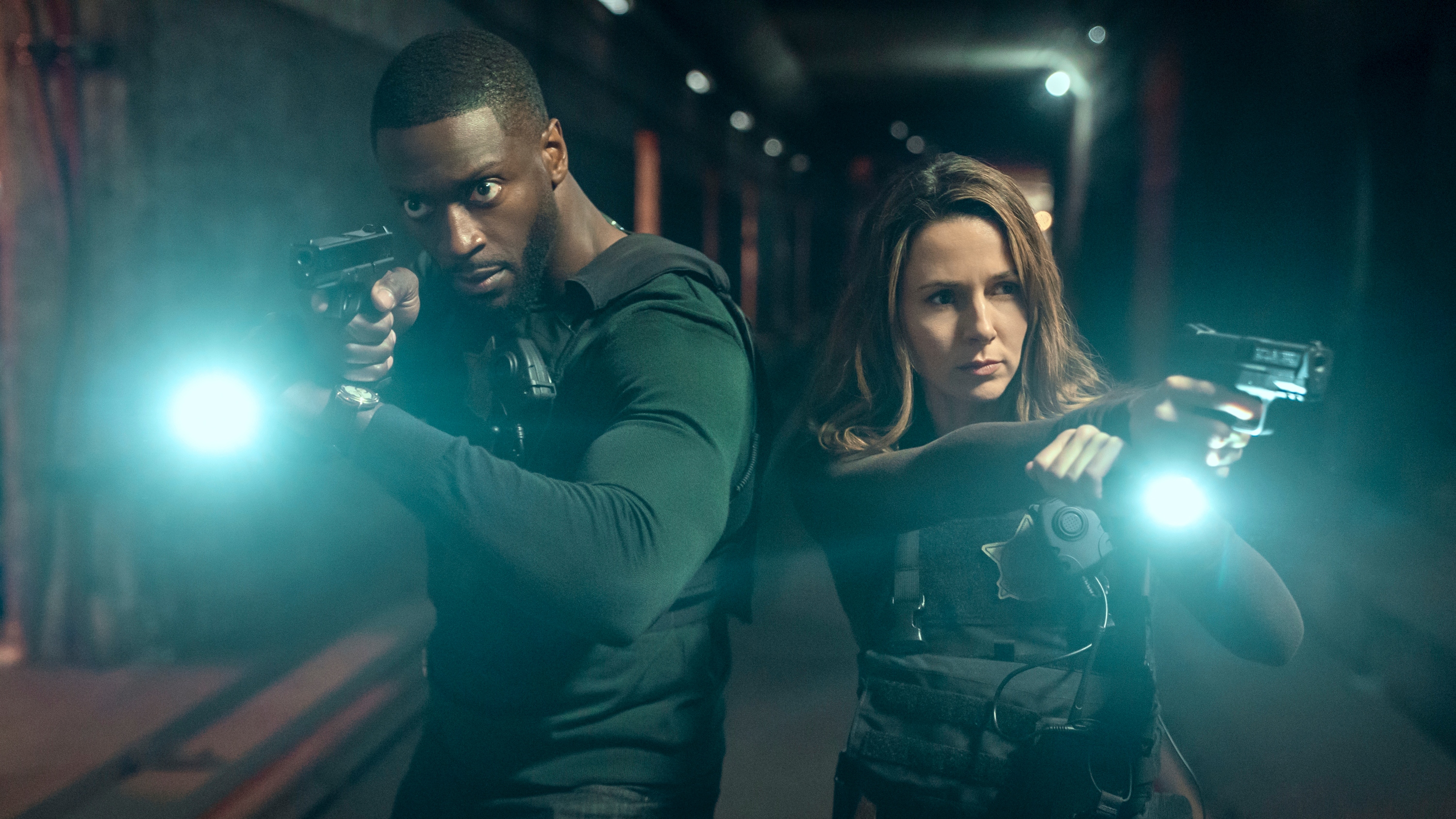What to Watch Verdict
You don’t have to trust the narrator to acknowledge Black Bear as one of the most fascinating films of the year.
Pros
- +
🐻Amazing performances from the three leads, especially Aubrey Plaza.
- +
🐻Metafictional storytelling at its finest.
- +
🐻Genuinely jarring twists.
Cons
- -
🐻This film is not friendly to casual viewership. Prepare to marinade in it.
Black Bear opens on Aubrey Plaza getting up from her seat on a pier, going into a cabin, and sitting down to write. Before anything else happens in the film, we are given the cue to expect that what we are experiencing is a fantasy, expressed as clearly as if the curtain had raised on a play and the artifice of the stage was laid bare before us.
What’s so intriguing about Black Bear, though, is that it is willfully toying with our perception of what the “truth” of the story is. It challenges us to acknowledge the difference between drawing inspiration from our lives and simply recounting events as we understand them. In other words, more than anything Black Bear is a film about the act of storytelling. It forces the audience into a level of active engagement that will drive viewers, looking for a straightforward plot, insane but is immensely rewarding.
The film "proper" opens on Allison (Plaza) arriving at a remote cabin owned by Gabe (Christopher Abbott) and his pregnant girlfriend Blair (Sarah Gordon). Allison is an actor-turned-director who wants to use the seclusion to force herself to write her next film but is almost immediately sidetracked by Gabe’s subtle flirtations and Blair’s barely concealed jealousy. One night, as the trio have dinner things deteriorate from a cordial questioning of one another’s into barbed backhanded digs that unearth relationship strife between the couple and Allison’s apparently pathological tendency to provoke their antagonism.
This is a premise that lives and dies on its performances and thankfully these three give such nuanced performances — enhanced by evocative editing by Matthew L. Weiss — that it becomes a fascinating character study of all three. Abbott’s interpretation of Gabe as a failed artist feeling lonely because of his lack of emotional support complements Gordon’s take on Blair as a woman who feels diminished by her pregnancy and hates that Gabe is no longer attracted to her. Plaza is the centerpiece, though, playing Allison as a persistent wind-up-merchant that you can never quite tell is serious or joking. These are three deeply flawed characters, bouncing off one another through nuanced portrayals, showing just how far great dialogue and skilled actors can make for a quality narrative.
But then Black Bear takes a turn about halfway through — abandoning a harrowing climax in favor of starting from scratch and recasting our leads into new roles. They are now using the cabin property to shoot a film that is reminiscent of the plot we just saw, but Allison’s and Blair’s roles are now reversed — both in the film and in the film-within-the-film — and Gabe is the film’s director and Allison’s husband. From here, Black Bear transforms into a dark comedy of sorts, following the chaotic ins and outs of making an independent movie and the kinds of pretentious mind games that are played between directors and actors.
The parallels between the first and second half are what make Black Bear so interesting, as it shuffles character roles, dialogue and story elements. Is this the story of how Allison abandoned acting to become a director? Is this the story of Gabe and Allison dramatizing and capitalizing on their fateful night with Blair? None of these questions can be answered absolutely because there is so much contradictory evidence at play. But answers aren’t the point, since these two halves only make a whole if you remember that you are being told a story. These are the creations of a writer. There’s gleeful solipsism in Levine’s obstruction of the “truth” as he constantly reminds you that the film can only ever be a collection of lies.
Aubrey Plaza really swings for the fences in the latter half, giving one of the most hypnotic and enigmatic performances of the year. Even with such strong material, it wouldn’t be the same film without her gravitational presence. She grounds the fiction. After all, within this film’s framing devise — another layer of fiction, remember — she is the writer and how are we to trust anything she says? In the end, you don’t have to trust her to acknowledge Black Bear as one of the most fascinating films of the year.
The latest updates, reviews and unmissable series to watch and more!
Leigh Monson has been a professional film critic and writer for six years, with bylines at Birth.Movies.Death., SlashFilm and Polygon. Attorney by day, cinephile by night and delicious snack by mid-afternoon, Leigh loves queer cinema and deconstructing genre tropes. If you like insights into recent films and love stupid puns, you can follow them on Twitter.


